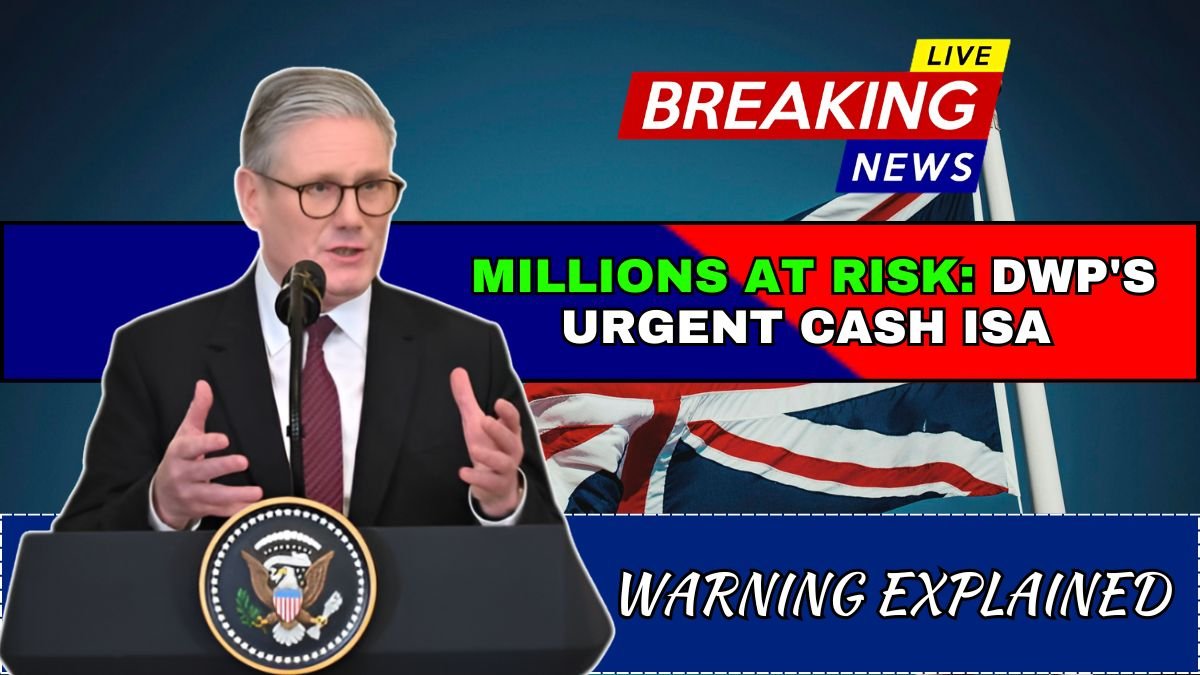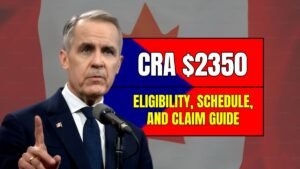Recently there has been a lot of talk that the UK government, which is working under the leadership of Finance Minister Rachel Reeves, can make big changes in the annual tax-free savings scheme for Cash ISA holders. As per the current rules, you can save up to £20,000 in a financial year in a tax-free manner. But there is news that this limit can be reduced to £4,000 or even less. There is even talk of ending the entire Cash ISA scheme. If this comes true, then the tag-free savings of millions of people will be affected, because Cash ISA is an important part of their plans.
Current System and Possible Changes
Today you can save up to £20,000 tax-free simultaneously in Cash, Stocks & Shares, or Innovative Finance ISA. But the proposed new rules include:
Aspects, Current Position, Possible New Rules
- Annual allowance
Current: £20,000
Possible new: £4,000 in Cash ISA only - Flexibility
Current: Fund transfers possible in Cash and Stocks ISAs
Possible new: Fund transfers limited or difficult - Tax exemption
Current: Tax-free interest on cash
Possible new: Relatively low or temporary tax exemption - Simplicity
Current: One common limit for all ISA types
Possible new: Different limits for different products, can be complex
The aim of this change is to encourage people to move tax-free savings into Stocks and Shares ISAs, boosting investment and boosting the economy.
Why Is the Government Making This Change?
There are several reasons why the government is suggesting such a change:
Increasing Investment in UK Companies
The government wants even small savings to go into UK companies. If people invest in Stocks or Shares ISAs without putting money into Cash ISAs, money will flow into the equity markets and companies will thrive.
Boosting Economic Growth
Around £300 billion in cash is tied up in ISAs, not flowing into the economy. The government wants to “turn” this money around to boost jobs, growth and innovation.
Redistributing Tax Relief
Currently those who can save up to £20,000, including the rich, already take advantage of the tax breaks. This leads to a growing inequality of tax breaks. The new tax policy aims to balance this out a little.

Who Will Be Affected – And How?
The impact of the potential change in rules depends on how you invest:
Type of Saver, Potential Impact, Advice/Strategy
- Risk-averse savers
Potential impact: Tax-free savings will be reduced
Strategy: Don’t forget the current limit, see fixed-rate options - Higher-rate taxpayers
Potential impact: Tax on higher-rate interest could rise
Strategy: Use the rest of the ISA allowance - First home buyers
Potential impact: Need to plan the deposit
Strategy: See Lifetime ISA, the limit is £4,000 - Retirees who rely on some savings
Potential impact: Investment risk may increase
Strategy: Build an instrument-balanced portfolio - Younger or lower-income people
Potential impact: Personal Savings Allowance can benefit them
Strategy: Take advantage of the £1,000 (or £500 for higher taxpayers)
What the Experts Are Saying
- Damien Jordan (Financial Interest) believes Stocks & Shares ISAs will help in the long term and will strengthen the investment culture.
- Martin Lewis (MoneySavingExpert) is concerned that not everyone will be familiar with the risk potential of Stocks ISAs. This could lead to inconvenience or losses for some. It could also have an impact on the banking ecosystem and the home-loan market.
How to Be Prepared?
1. Fill Up Your Allowance Now
If you haven’t filled up some of your £20,000, now is the time before the Budget comes into effect.
2. Check Out a Fixed-rate Cash ISA
Invest in a 1–5 year fixed-term ISA. These are tax-free, even if taken for general tax.
3. Take Advantage of Personal Savings Allowance
Ordinary tax rate people can earn tax-free interest up to £1,000. Higher raters £500, then the big bucks.
4. Start a Stocks & Shares ISA
If risk isn’t a problem, start investing in this ISA slowly with study, advice, demo cycles, stalling.
5. Invest in a Variety of ISAs
Understand the tax-free benefits through Lifetime ISAs, Innovative Finance ISAs, Premium Bonds and choose the right one.
What Is the Government’s Official Position?
The October 2024 Budget said the ISA allowance would be frozen until 2030. But in a recent statement, Treasury Economic Secretary Emma Reynolds has indicated that the ISA system is being reconsidered. She said, “Why are there thousands of crores in Cash ISAs? We have not been able to get a culture of investment going.”
Overall, there has been no formal announcement yet that the Cash ISA is going to end, but a reduction in the £20,000 limit certainly seems the most likely possibility.
Will the Entire Cash ISA End?
While possible, this is unlikely in reality. More likely is a change to a limit such as £4,000, the same limit as the Lifetime ISA.
What Will Be the Impact on Tax and Savings?
If the allowance is reduced, tax on interest may increase.
Tax Slab, Personal Savings Allowance, Tax Rate on Interest
- Basic 20%
Personal Savings Allowance: £1,000
Tax rate on interest: 20% above - Higher 40%
Personal Savings Allowance: £500
Tax rate on interest: 40% above - Additional 45%
Personal Savings Allowance: £0
Tax rate on interest: All interest may be taxed at 45%
Read more: CRA $1050 Pension Coming for Seniors in 2025: Check If You Qualify
What Are the Other Options?
- Premium Bonds
Tax-free rewards, but no interest. Always capital protected. - Lifetime ISA
Great for home or retirement. - Pension Contributions
Tax advantaged and long-term planning. - Innovative Finance ISA
Slightly higher interest, but there will be risk and platform risk.
When Can These Changes Happen?
If the government does announce the changes, it is likely to happen in the Autumn Budget (October policy announcement time). The deadline for action could be as late as the next tax year (April 2026).
Conclusion
Regardless of whether there are changes, it’s clear that you should balance your savings and investment options. Instead of over-dependence on a single ISA, use a variety of instruments, cash, stocks, pensions, bonds and others. This will reduce your risk if there are any changes or rule changes.
Monitor updates on the government website GOV.UK and seek advice from a financial adviser if you’re not sure how to build your portfolio.


